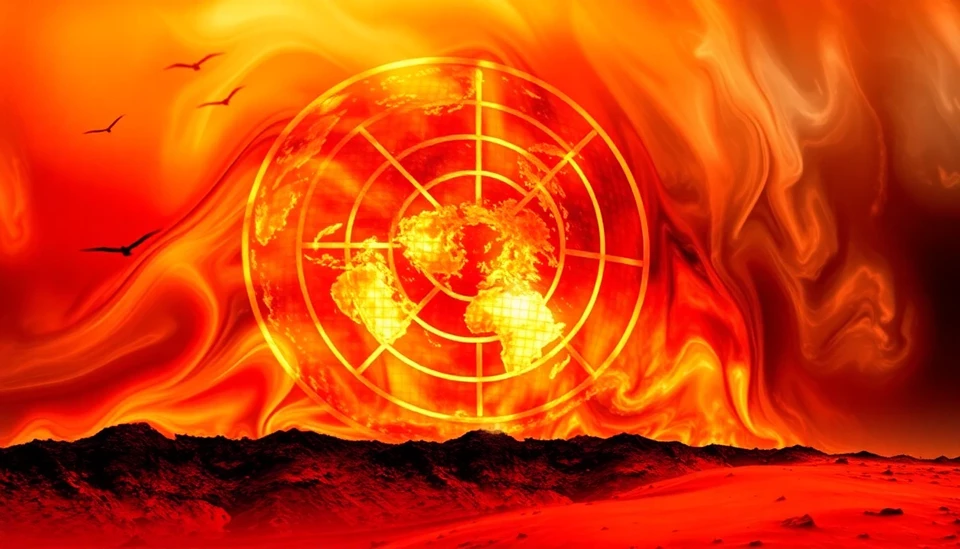
The latest report from the United Nations paints a grim picture of the future of our planet, indicating that the world is now on a precarious path that could lead to an alarming increase in global temperatures by as much as 3.1 degrees Celsius above pre-industrial levels. Such a significant rise in temperature poses severe risks to ecosystems, human health, and economies worldwide, highlighting the urgent need for decisive climate action.
This stark warning follows closely from the UN's Intergovernmental Panel on Climate Change (IPCC), which has consistently reiterated that the window for limiting global warming to 1.5 degrees Celsius—a threshold considered crucial for avoiding the most catastrophic effects of climate change—is rapidly closing. Without immediate and effective measures, the likelihood of surpassing this critical threshold is increasing, and the recent report underscores the implications of inaction.
One of the key drivers of this potentially catastrophic climate scenario is the continuous rise in greenhouse gas emissions, which have not only persisted but, in some cases, accelerated in the last few years. The report details that despite global commitments to reduce emissions in response to climate change, the actual progress has been insufficient. More robust pledges and actions are necessary, the report stresses, emphasizing a call for nations to adhere to and enhance their climate commitments as outlined in international treaties such as the Paris Agreement.
The implications of a temperature rise of up to 3.1°C could be devastating. Experts note that such an increase would lead to unprecedented extreme weather events, rising sea levels that threaten coastal cities, and widespread disruptions to agriculture, leading to food shortages and potential conflicts over resources. Vulnerable populations, particularly in developing nations, will be disproportionately affected, exacerbating existing inequalities and instability.
The UN report also calls for a comprehensive approach to climate adaptation and resilience-building measures. It argues that while mitigation efforts to reduce emissions are crucial, coping with the changes that are already underway is equally important. This dual strategy could help protect communities and ecosystems from the immediate impacts of climate change, while also laying the groundwork for a sustainable future.
In light of these alarming findings, global leaders are being urged to unite and take immediate action. Upcoming climate conferences and summits provide critical opportunities for nations to negotiate and strengthen their commitments to cutting emissions, transitioning to renewable energy sources, and investing in sustainable practices. The success of these efforts could define the prospects of our planet for generations to come.
As the world grapples with the reality of climate change, the message from the UN is clear: time is running out. The path to a sustainable future is fraught with challenges but remains imperative if we are to preserve the planet for future generations.
Urgent action is needed now to prevent further degradation of our environment and ensure that we do not head towards a future defined by climate chaos and uncertainty.
#ClimateChange #GlobalWarming #UNReport #ClimateAction #Sustainability #ParisAgreement #Emissions #RenewableEnergy
Author: Peter Collins




